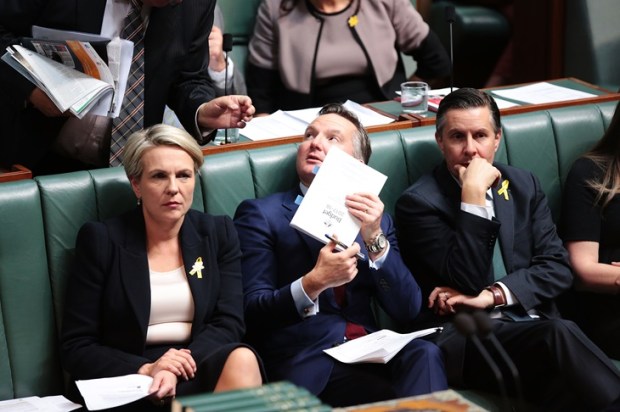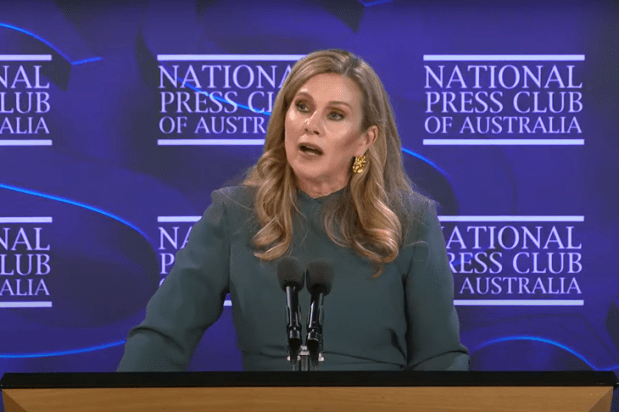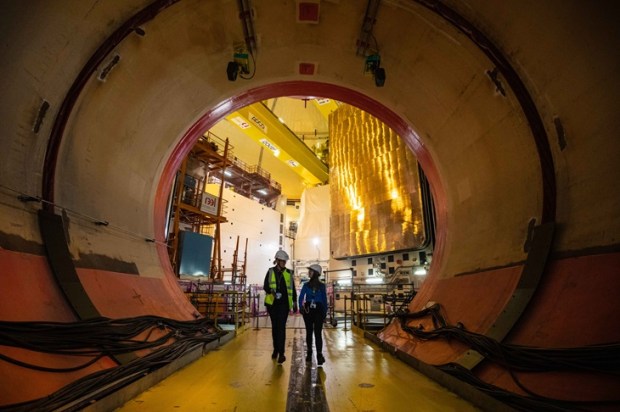Australia’s Climate Change and Energy Minister Chris Bowen has been crystal clear on his views regarding nuclear energy. His latest label – uttered multiple times on the ABC program QandA earlier this week (and reinforced or at least repeated on the same program by Allegra Spender) – is that nuclear is ‘a distraction’.
A distraction. Actually, according to Mr Bowen, a ‘massive distraction’.
Referring to a technology that Climate Change experts at the United Nations consider as a critical component to achieving Net Zero, our Climate Minister (who incidentally has zero relevant technical qualifications to the portfolio) has a view that is diametrically opposite.
The Labor Energy policy and its anti-nuclear stance is a result of leftist ideology. What is also important, however, is to understand the broader implications of being so ideologically driven. What else is the country missing out on?
‘Australia is 20 years behind the rest of the world’ is an adage that unfortunately Australians are all too familiar hearing.
In the same QandA episode, Ms Spender noted that she is ‘generally an open-mind kind of person’ but would only consider lifting the ban on nuclear once the costs are proven, once SMRs have been broadly rolled out and been successful globally, and once they are proven able to be developed quickly.
Put simply, Ms Spender wants Australia to continue to be 20 years behind the rest of the world. Her view will leave us as the consumer of other countries’ technology and innovation instead of developing our own.
Perhaps what Mr Bowen and Ms Spender do not comprehend is that the ban on nuclear acts as a handbrake on all manner of activities and opportunities in Australia. Without the possibility of civilian application, R&D and education facilities will not prioritise the sector, while private investors – the world’s leading nuclear technology companies and associated financial investors – will not look to play here. This is happening against an awkward backdrop of Australia being obligated to develop the industry to meet our AUKUS obligations.
In order to encourage innovation, a very simple place to start is to provide a market environment whereby firms can invest their efforts confident that there is a commercial market opportunity available as a reward. As a starting rule – don’t ban things for no discernible reason. Mr Bowen has a degree in economics, so this is a concept that he is surely familiar with. The excuse of being ‘a distraction’ would arguably not be a reason that Mr Bowen’s undergraduate economics lecturer would accept as a reason to depart from standard free market principles.
What is more clearly a distraction and a waste of resources, is the substantial amount of time recently spent by the government trying to bend and stretch its ideological conscience to meet its policy obligations. It has been previously reported that Senator Canavan unsuccessfully put forward a bill to remove the ongoing ban on nuclear in Australia. A simple request to amend or remove one section of the Act, a mere paragraph on a page, is a possibility succinctly demonstrated by nuclear activist Will Shackel on the program.
This event resulted in a senate committee report of around 100 pages put together over many months, summarising a range of weak justifications recommending the nuclear ban be continued. At almost the same time, but to very little fanfare, Labor pushed through a law essentially removing the ban on nuclear reactors in this country but only for the purposes of nuclear propulsion. It was a complete waste of resources to achieve an outcome far more flawed than the original Canavan proposal.
If indeed Mr Bowen is worried about the limited capacity he clearly has to focus on things, all he has to do is lift the ban and allow other private investors and corporations to bring their many skills and experience to bear on the opportunity, potentially providing a solution that could be complementary too, not to the exclusion of and not at the expense of, his current thinking.
As is tradition with QandA, a viewer poll was conducted on the main topic of the debate, in this instance whether to remove the nuclear ban. Even from a traditional, left-leaning ABC audience, roughly 60 per cent of respondents were in favour of removing the ban.
It’s time to read the room Mr Bowen, remove the ban and let’s see what the market might deliver. It might just surprise you.

























